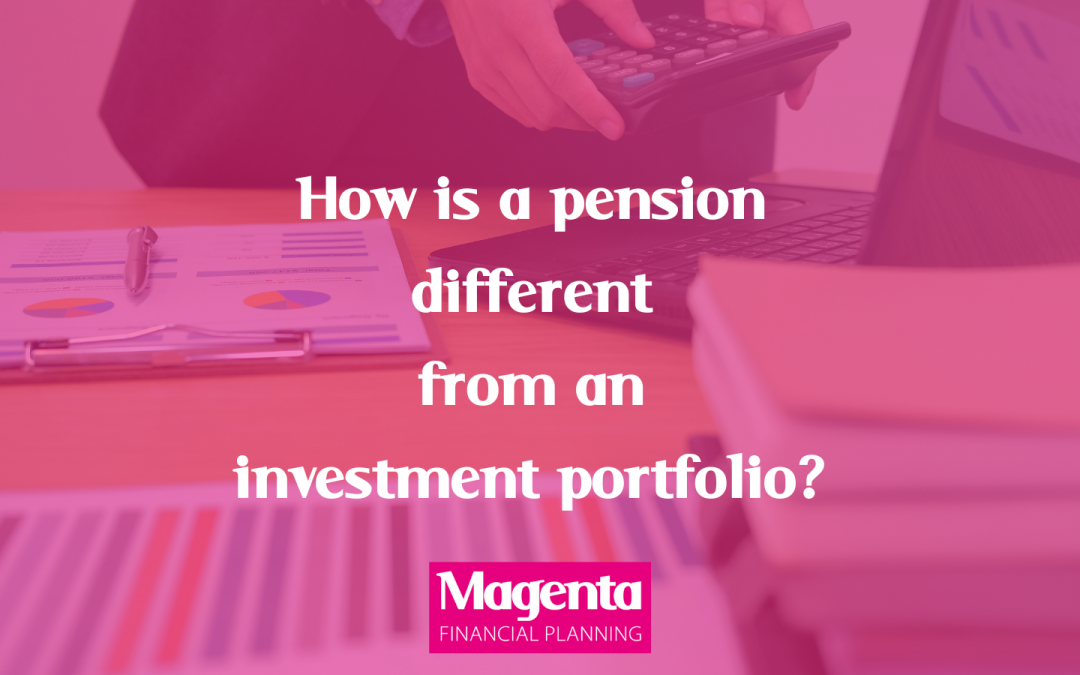This is something we get asked a lot and we understand why! The different financial labels really don’t help in understanding what these things are, how they differ and how they are the same.
So, are they the same, or different?
The short answer is that they are different and in a lot of ways the same!
Let us explain why…
How they are different
A pension is a type of ‘product’, which is a label to say that there are certain rules and allowances to how pensions can be used, and taxes applied to them. Whilst there are only a couple of types of pension, there are lots of different types of investment products, some of which you may have heard of – such as ISAs and General Investment Accounts – and some more unusual or specialist ones that you may not have. Each has its own rules and allowances of how they can be used, and taxes applied.
Pensions are designed to make sure you build funds ahead of your retirement, and the government ensures they are the most tax-efficient and accessible way of doing so. You and your employer (if you’re employed) put money into your pension tax free (often via tax relief), it grows without being taxed and when you draw on it, it is usually the case that 75% of it is taxed and a 25% isn’t.
There are too many different types of investment products out there to go through each of them individually within this blog post. In most cases, they are less tax efficient than pensions. This means that for most people it makes sense to save for retirement in a pension. Currently you can access your pension from age 55, but this is going up to age 57 in 2028.
For those that want to save for something sooner, often an investment can work out a better choice. If you want flexibility on when you can access the money in future and how you can use it, you would opt for an investment product, but the trade-off is the tax benefits you might miss out on compared with a pension.
How they are the same?
How they are the same is that they can hold the same funds and investment choices within them, whether they are held within a pension product or a different investment product.
When we talk about a pension or an investment, what we’re really talking about is the product, rather than what is held within it. The bit that’s held in it – the investment portfolio or funds – is what makes the value of the pension or investment go up and down.
This means that the same portfolio of funds held in a pension should grow at the same rate as an investment, such as an ISA. The only difference is whether tax rules applicable reduce the value of the fund, compared with holding it in a pension.
In conclusion, it’s the underlying investment funds/shares (what’s under the bonnet of the ‘product’) that are the same whether it’s a pension or an investment product, such as an ISA. The difference is the tax treatment will be different if held in, or outside a pension.
Understanding the best way of saving each month or with a lump sum can be confusing, given the number of choices and often complicated tax rules. If you feel you need advice about this, get in touch and we’d be happy to see if we can help.
Please feel free to share this content if you think this could be of interest to someone you know, or your social network, via the buttons below.

